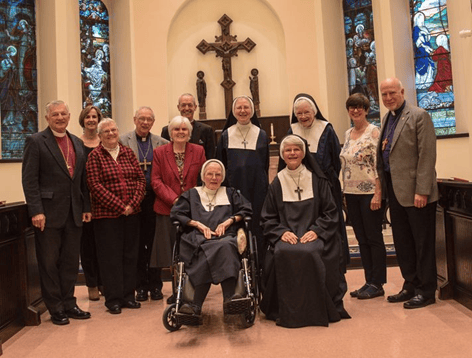NEW YORK – When Father Erick Berrelleza graduated college in 2005 he gave his diploma to his parents, who framed it and hung it in their house. Now, as he begins a new role as the dean of a new Boston College school he hopes to give other first generation college students a similar experience.
“For me, it’s really beautiful that [my parents] memorialized it there because it’s really their degree also and I think that students who come here will see that there’s a full community behind them, cheering them on and making sure that they thrive,” Berrelleza told Crux. “And at the end they should really hang the degree on their wall, and hopefully they can say when they look at it that a lot of people helped them get where they are and achieve that degree.”
At the end of August, Berrelleza was appointed to be dean of Messina College, a two-year residential college division of Boston College that will offer an annual associate’s degree program for 100 students beginning in the 2024-2025 academic year.
The college is a part of Boston College’s $100 million Pine Manor Institute for Student Success initiative that aims to provide educational opportunities for underrepresented, first-generation students. It was established in 2020. The program will offer a residential opportunity to the students that participate in the program, and they’ll also have full access to Boston College facilities.
The new college is named after the first Jesuit school founded in Sicily, Italy, in 1548.
Speaking to Crux about the new college, Berrelleza said it addresses two main issues in higher education: Educational access and the pressures and challenges many first-generation students face.
“One question is access, getting them in the door, but the second question is really, will they do well there? And I think what we’re going to do with this Boston College model at Messina, with providing a residential program, I think we’re going to allow them to really thrive – not have to worry about housing insecurity, food insecurity,” Berrelleza said. “We’re going to have them be college students.”
The intent of the program, according to a Boston College news release, is to prepare students for continued studies in a bachelor’s degree program, or for professional careers. Berrelleza said at this point there won’t be a cost associated with the program, adding that he hopes he and the school will be a resource for first generation college students who may not have family with college experience.
Berrelleza knows that challenge firsthand. His parents are from Mexico. His father owned his own business and never got a college degree. His mother worked in early childhood education and got an associate’s degree later in life. Neither of them knew the ins and outs of the collegiate system, but both of them were always keen on him getting an education, he said.
“My parents didn’t have the higher education to help me navigate that system, but they did have a commitment to knowing that it was going to be super beneficial and they wanted me to get something that they couldn’t get,” Berrelleza said.
Berrelleza graduated with a bachelor’s degree in philosophy from Loyola Marymount University. He then joined the Jesuits, and is a member of the USA West Province. In 2021, he earned a Ph.D. in sociology from Boston College’s crosstown rival, Boston University. He was an assistant professor of sociology at Santa Clara University before his recent appointment. He said his experience in Santa Clara and through his own academic journey will be key to his success at Boston College.
“I’ve been involved in Jesuit higher education for a long time. But I think what’s going to help me a lot in my role is my experience as a first gen; also, what I research is immigration,” he said. “So knowing about immigrant incorporation, knowing about precarity of spaces and how spaces can be exclusionary and how we can create spaces of belonging.”
The California native will head east later this year. As for why getting an education is important, especially for those in underrepresented communities and who would be first-generation college students, Berrelleza highlights the doors an education opens that won’t otherwise be available. And a Jesuit education in particular, he said, is more “holistic.”
“It’s about human formation,” Berrelleza said. “It’s about making sure that the students that come to us recieve an education that causes us to do some self-reflection, but also consider our place in the world and say this requires some kind of response as well.”
Follow John Lavenburg on Twitter: @johnlavenburg
















